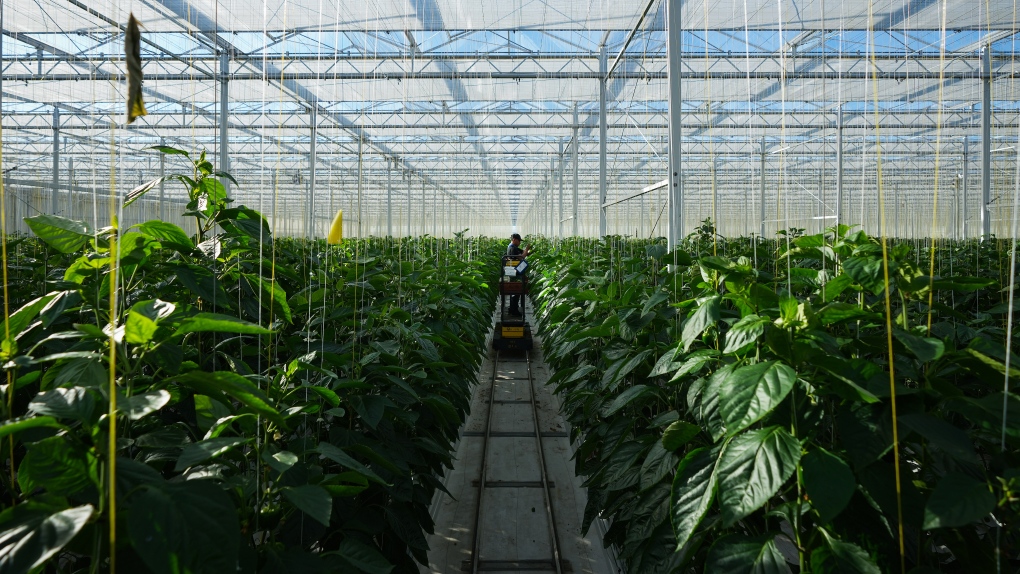Drought poses key risk to Canada’s natural gas producers in 2024: Deloitte

CALGARY –
Persistent drought conditions are poised to challenge natural gas producers even as they aim to ramp up in anticipation of Canada’s first liquefied natural gas export terminal opening, a new report warns.
The report by Deloitte Canada identifies potential water shortages in Western Canada as a key risk facing the oil and gas sector in 2024.
Some of the most extreme drought conditions currently are in northeast B.C. and northwest Alberta, a region that is the epicentre of Canada’s natural gas drilling industry.
The report notes Alberta’s government has already set up a drought advisory panel to begin water usage negotiations, while B.C. Premier David Eby has called his province’s situation “the most dramatic drought conditions that we’ve seen.”
Water use is important for the natural gas industry – most development in Canada today involves hydraulic fracturing, a process that uses a combination of water, sand and chemicals to develop pathways to bring the gas to the surface.
And the drought comes as the industry anticipates increased demand for natural gas, coinciding with the expected opening sometime next year of the LNG Canada facility in Kitimat, B.C.
“It is really interesting to see, because this is the moment the natural gas industry has been waiting for 10 years, and we’ve now got another complication,” said Andrew Botterill, national oil, gas and chemicals leader at Deloitte Canada.
The $40-billion LNG Canada project will ship liquefied natural gas overseas and open up Asian markets to Canadian natural gas for the first time.
Much of the $5 billion in capital spending projected to take place in B.C. by oil and gas producers in 2024, according to the Canadian Association of Petroleum Producers, will be driven by natural gas drilling to supply LNG Canada as the project’s completion date draws closer.
“I still think companies, especially those who have committed to putting gas volumes into a very expensive LNG plant that’s been built, will meet all of those requirements … It’s just going to be harder work and probably will mean some extra costs around water management,” Botterill said.
In December, the Alberta Energy Regulator warned the oil and gas industry that they could face restricted access to water in the event of severe drought in 2024. The provincial government has already launched negotiations aimed at trying to get major users to reach water-sharing agreements.
Meanwhile, the B.C. Energy Regulator has provided advance warning of the potential for water restrictions for industrial water licence holders if conditions deteriorate.
Botterill said as restrictions come into place, gas developers will need to explore increased use of alternative water sources. Using recycled water – which means treating and reusing previously used fracking fluid – is an option, but is typically more expensive and more technically complicated than using fresh water.
In 2022, according to the Alberta Energy Regulator, just over one per cent of the water used by hydraulic fracturing operations was recycled water, with the remaining 99 per cent being primarily fresh water.
“I think we’re going to see companies be able to manage, but there’s going to be a lot more work that goes into it,” Botterill said.
“I see it as an expense and a complication to operations.”
This report by The Canadian Press was first published April 3, 2024.
View original article here Source









